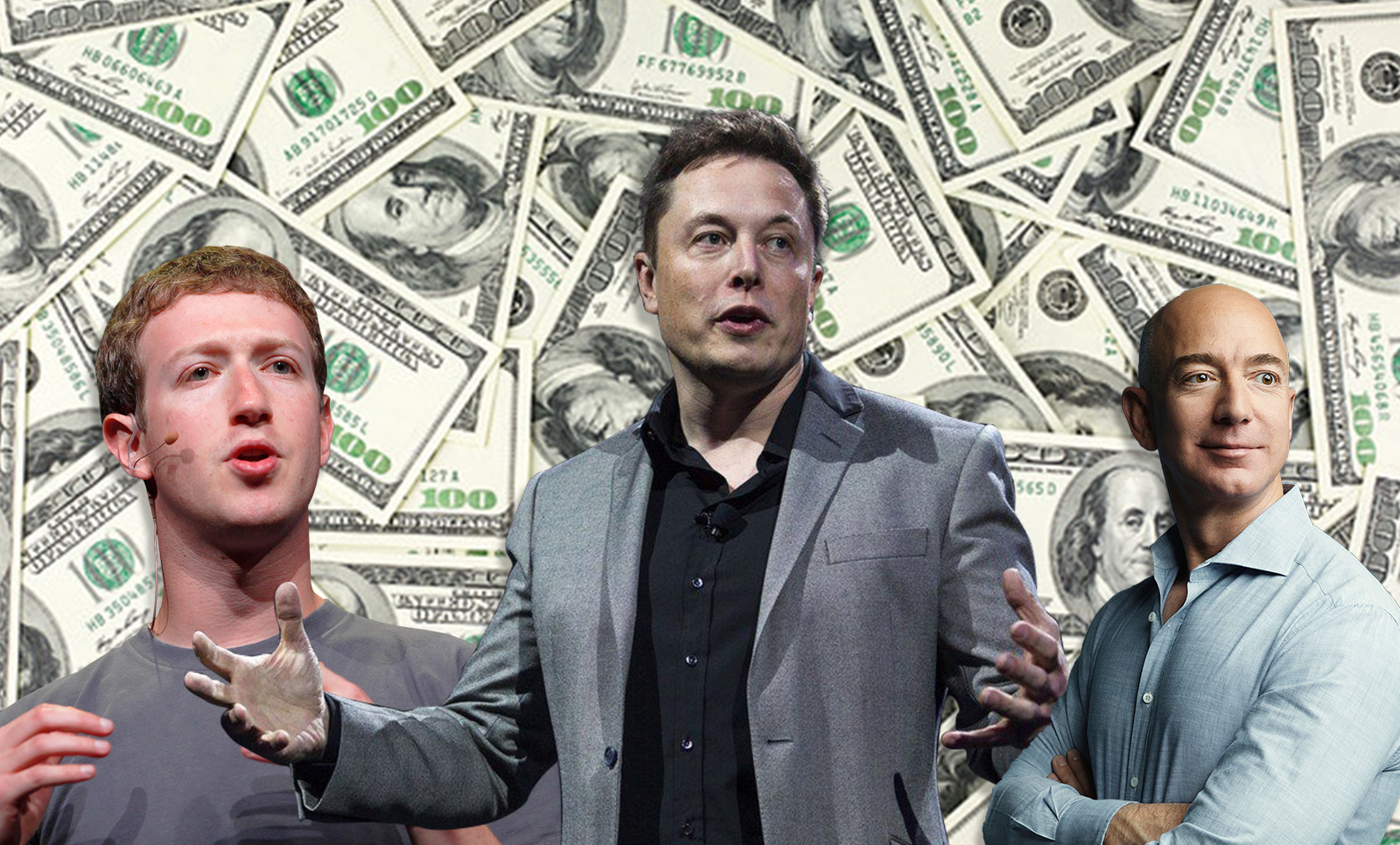Business
The fortunes of Silicon Valley billionaires took a beating in 2022
Published
1 year agoon

Big shots, big loss! Tech billionaires suffered another rough year, according to Forbes’ 2023 ranking of the world’s wealthiest people. In total, Forbes discovered 313 billionaires who found success in technology, down from 332 the year before. Their aggregate net worth is down $200 billion from last year’s figure of $2.1 trillion.
The lower figures reflect a tech market that is slowing down after reaching an all-time high in 2021, when Forbes discovered 365 technology billionaires, worth $2.5 trillion, the greatest number ever. The technology industry has shown that it is not immune to general concerns about inflation, increasing interest rates, and fears of recession—not to mention a government crackdown on Chinese IT moguls.
Despite the drama surrounding Twitter and sliding Tesla shares, Elon Musk didn’t wind up losing the most last year, according to Forbes. That title goes to Jeff Bezos, who is now $57 billion worse than he was a year ago because of the stock’s 38% decline. With 27,000 layoffs expected in early 2023, Amazon, which hired quickly during the pandemic, is now reversing part of that expansion. MacKenzie Scott, his ex-wife, who received a fourth of Bezos’ shares in their 2019 divorce and has been donating money at a record rate, is also down significantly, by $19.2 billion.
Other tech titans who have seen their fortunes significantly decline are Bill Gates and Steve Ballmer of Microsoft (-$25 billion and -$10.7 billion, respectively), and Larry Page and Sergey Brin of Google (-$31.8 billion and -$31 billion, respectively). In 2023, Microsoft and Alphabet, the parent company of Google, both announced significant layoffs that affected 10,000 and 12,000 people, respectively.
Blue-chip tech firms aren’t the only ones suffering, though. Startups valued at $1 billion or more, known as unicorns, have also struggled this year because of the lack of venture capital funding and the decline in valuations. When compared by percentage of net worth, unicorn founders have experienced some of the greatest losses in fortune among all billionaires during the previous year.
Consider Stripe co-founders John and Patrick Collison, who raised money in March at a $50 billion valuation, a 47% decrease from their previous investment round in March 2021. Or consider Melanie Perkins and Cliff Obrecht of the graphic design company Canva, which, based on estimates from Forbes, is worth roughly half what it was in September 2021.
Since Forbes’ 2022 ranking of the world’s wealthiest people, each of the four tech figureheads mentioned has witnessed a more than 40% decline in their net worth. 51 unicorn founders are poorer today than they were in 2022, according to Forbes, and at least 19 of them are no longer billionaires.
Not that technology isn’t still a lucrative industry. With its billionaires valued around $170 billion more than the next-place industries of fashion and retail, it is the third-most frequent sector for billionaires and the wealthiest of the group.
Why have tech moguls lost hundreds of billions of dollars?
It’s indeed a gloomy year for the economy, with high inflation and recession anxieties leading to sharp downturns in the stock market. This decline could be due to a combination of factors, including market volatility, increased competition, regulation and government intervention, shifting consumer trends, and global economic trends.
Market volatility
One of the primary reasons for the decline in wealth of tech billionaires could be market volatility. The tech sector has always been known for its boom-and-bust cycles, and the current decline in wealth could simply be a part of that cycle. Market volatility can lead to a decrease in the value of shares held by these billionaires, resulting in a decline in their net worth.
Stock market reversals
The decline in tech stocks over the last year has shrunk the fortunes of several of the world’s top billionaires, whose net worth is tied to equity in the companies they founded or managed. With their fortunes often tied up in their company’s stock, any decline in the value of the stock can lead to a decline in the wealth of these tech billionaires.
No one has lost more than Amazon founder Jeff Bezos, thanks to a 38% plummet in the e-commerce giant’s stock. The fall in tech stocks has hammered many tech giants including Larry Page, Eric Schmidt, Mike Cannon-Brookes, Michael Dell, and many more.
Regulation and Government intervention
In recent years, there has been growing concern over the power and influence of tech companies. This has led to increased scrutiny and regulation, which can impact the value of these companies and the wealth of their founders. Government intervention, such as anti-trust lawsuits and regulations, can limit the power and influence of tech companies, which in turn can impact their value and the wealth of their founders.
Shifting consumer trends
Consumer trends can also impact the wealth of tech billionaires. As technology continues to evolve, consumer preferences can shift rapidly, leading to a decline in demand for certain products or services. This can impact the value of a company and the wealth of its founder. For example, the decline in demand for traditional personal computers in favor of mobile devices could impact the wealth of tech billionaires whose fortunes are tied up in PC manufacturers.
Global economic trends
Finally, global economic trends can also impact the wealth of tech billionaires. The tech industry is not immune to economic downturns, and any economic instability can impact the value of tech companies and the wealth of their founders. For example, a global recession or trade war could impact the demand for tech products and services, which in turn could impact the value of tech companies and the wealth of their founders.
It is worth noting that while the decline in wealth may be significant, these tech billionaires are still among the wealthiest individuals in the world, and their fortunes remain tied to some of the most innovative and influential companies in the world. Only time will tell if these billionaires can weather the storm and maintain their positions as some of the world’s wealthiest individuals.
You may like
-


Indian Government’s Crackdown on Social Media: A Threat to Free Speech
-


The Simpsons did it again! This time foreseeing Apple’s latest technological innovation – The Apple Vision Pro
-


Dilip Venkatraman was promoted to SVP and business head for Media and Entertainment at Tech Mahindra
-


Swati Bhattacharya steps down as FCB India CCO
-


Lodha Ventures onboards Mahesh Shah as President of Corporate Communications
-


Nippon India Mutual Fund names Kaiyomurz Daver as Chief Marketing Officer


